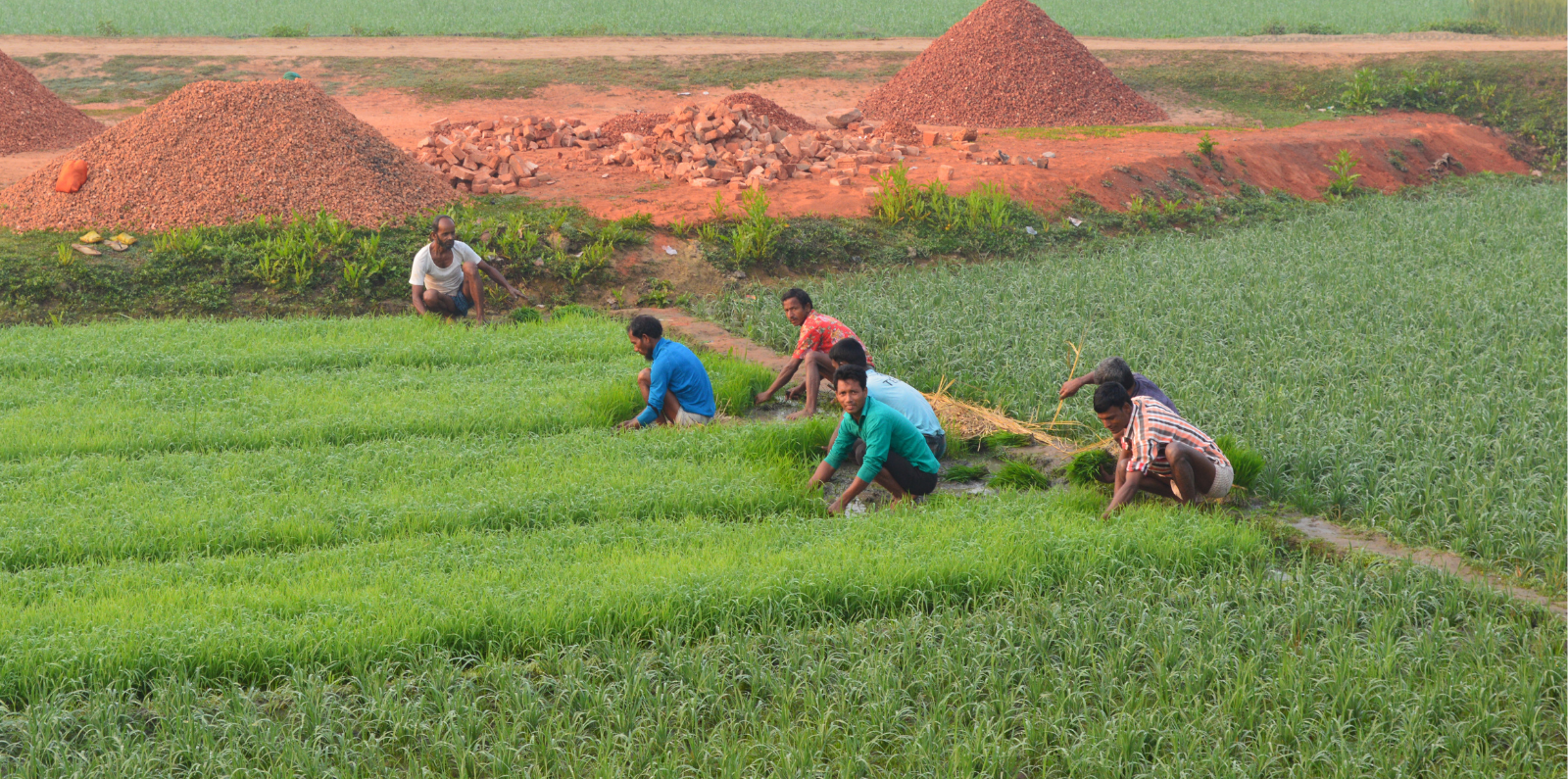The GAFSP Missing Middle Initiative (MMI) pilot project in Bangladesh is enhancing governance, financial management, negotiations, communications, and leadership capacity among 55 smallholder farmers’ organizations. More than 10,000 smallholder farmers, 62 percent of them women, have come together through the project to network and gain training in everything from financial and organizational management to digital skills.
The Sara Bangla Krishak Society is the apex organization of these farmers, a federation of farmer organizations. During the COVID-19 pandemic, this network used digital skills acquired through the project to run Virtual Call Centers across the country. These call centers support farmers to connect by phone and online, enabling them to sell produce or buy inputs when face-to-face contact was limited or impossible.
In this Insight Series, Rita Bromo, Farmer Business Facilitator for the Missing Middle Initiative, and Obydul Haque, General Secretary of the Sara Bangla Krishak Society, give their insight on working with GAFSP. They explain how the support and ownership of the funding allowed the network to bounce back during crises.
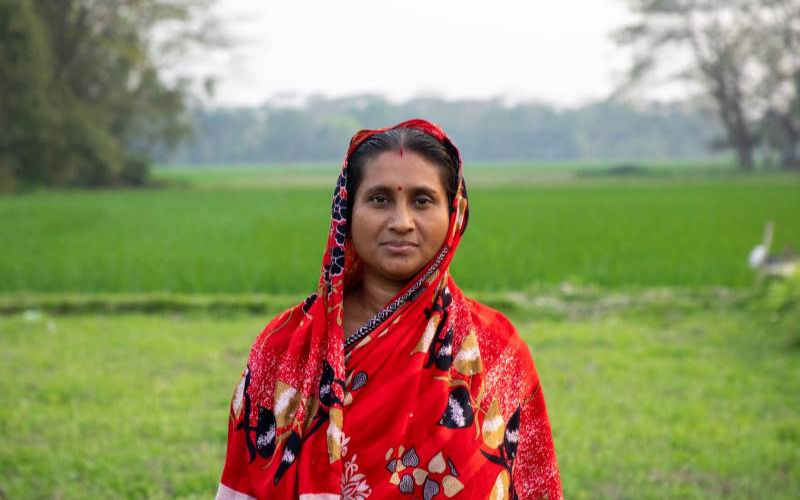
We own it
“The GAFSP-funded MMI project is our own project; we have a sense of ownership over it. We decided our activities and asked the MMI team and member organizations for support. We made a participatory business proposal before anything else, allowing us to invest in our own businesses. Some projects use farmers to disseminate technology, but this work was based on our needs as farmers, and nothing was pushed. We are a shared community; our farmers get competitive prices and we are reducing our production costs. Instead of ‘project beneficiaries’ as farmers and organizations, we were known as partners. The transition from project beneficiaries to partnerships is a big indicator of success.”
Building our own support system
“Before joining the MMI, we had no particular financial accounting management system. Now, we have a strong accounting system and manage the accounts and day-to-day financial transactions. We have grown from 40 to 55 member organizations, each with our own bank account, access to inputs and services, and funds like loans, with good linkages to other organizations like the private sector.”
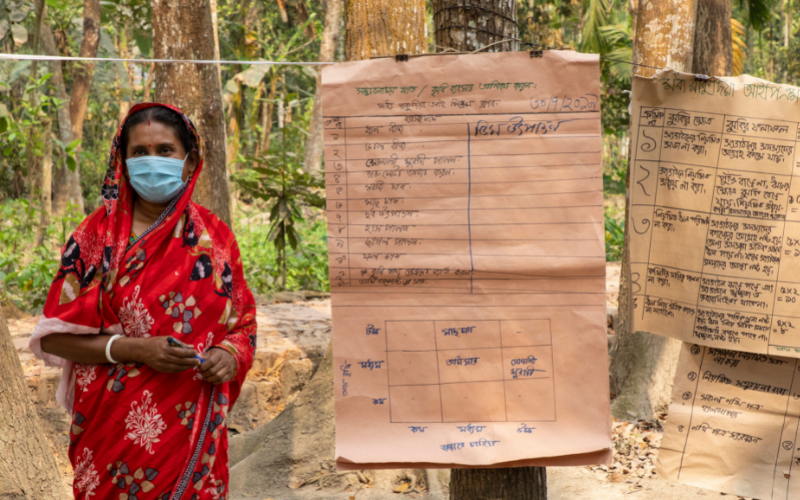
Collective resilience
“We received digital training before the COVID-19 pandemic, which helped us when the health crisis hit. We were already connected digitally and received the latest information every day from the Health Ministry about regulations, restrictions, and stimuli from the government. We also had technical webinars and set up Virtual Call Centers across the country to support members by buying and selling inputs and products collectively. This online interaction is still ongoing.”
Empowering women
“As women, we have been empowered; about 62% of members are women. For example, the newly elected executive committee of nine members comprises four women leaders, including the president; and most of the sub-committees, including the social audit committee, which regulates aspects of culture and is powerful, is mostly made up of women. Now we are confident to encourage other farmers to join us from other parts of the country.”
Obydul Haque, General Secretary of the Sara Bangla Krishak Society
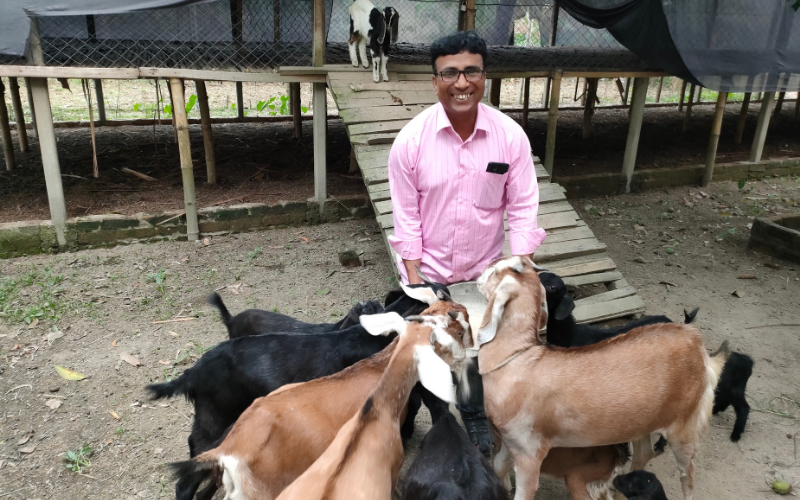
Identifying a winning model
“We faced many challenges as farmers that we all understood: for example, that producers grow a similar product, and during seasonal gluts, prices fall; and during the cultivation season, costs for inputs soar. Individual farmers cannot cope with these challenges, but this model supports us when we come together under an umbrella organization. We have now conducted our own marketing and cluster survey to identify challenges and solutions to replicate in other regions with similar climatic conditions.”
Strength in numbers
“We are also producing safer agricultural produce following improved practices, and since we are in organizations, we can get access to capital. Now 11 commercial banks are working with 32 producer organizations, and we have already received and paid back US$700,000 in loans. Individual farmers without access to land or assets would not have been able to access these loans. This attracts other community members to join, making the MMI not a project, but an institution like Sara Bangla Krishak Society, with ongoing activities and increasing funds and services.”
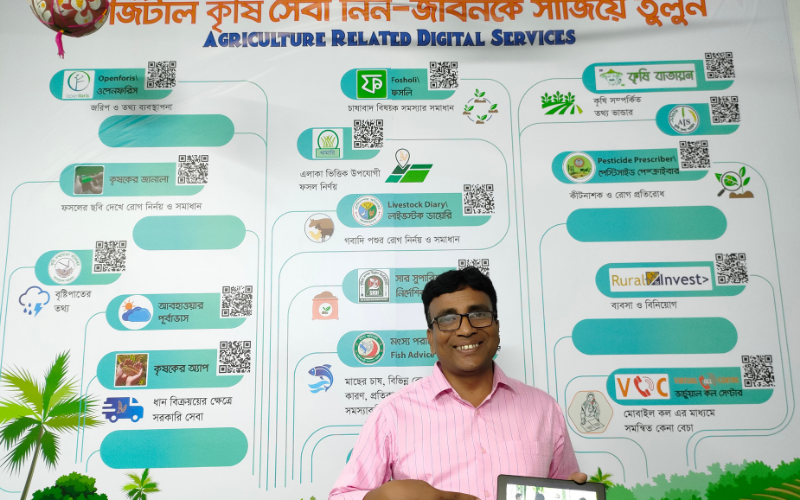
Diversifying risk
“At the onset of the COVID-19 pandemic, our farmers were worried about how they would sell produce or buy inputs. We had already invested in our digital literacy, and we had a list of input sellers, buyers, and wholesalers. So when governments declared a lockdown, we opened the Virtual Call Center operations to connect to local traders and dealers. With GAFSP funding, we also established a common center to produce inputs locally, such as poultry or cattle feed, to support local farmers. Over the past two years since the pandemic hit, we estimate that member income has increased by 11-15%.”
Strengthen capacity
“The advice we would give other organizations from our experience is to invest in capacity development: financial, business, and digital literacy. These things were crucial for us and we got results from this capacity building, especially during the pandemic. We were able to establish the Virtual Call Centers as a result of this capacity building; now we have 10,000 members or more integrated and confident despite the impact of the pandemic.”
